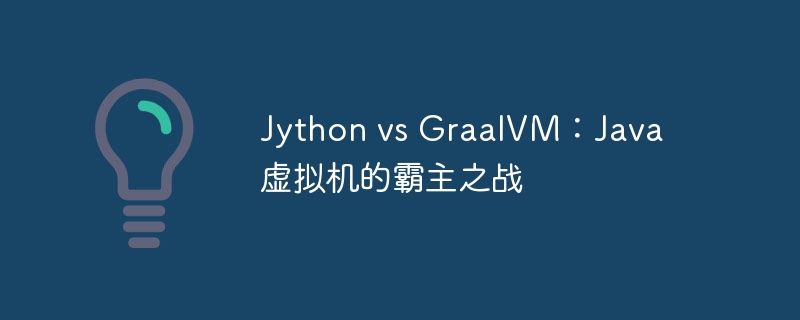

Execution speed: GraalVM leverages its LLVM-based just-in-time compiler to provide excellent execution speed. It dynamically compiles Java bytecode into native code, significantly reducing startup time and improving application performance. Jython, on the other hand, is an interpreter and executes python code slower than GraalVM.
Dynamic type: Jython is dynamically typed, which means variable types are determined at runtime. This feature allows objects to be freely transformed at runtime, providing greater flexibility. However, GraalVM is statically typed, requiring variable types to be specified at compile time to ensure stronger type safety.
Compilation strategy:GraalVM adopts a just-in-time compilation strategy to dynamically compile Java bytecode at runtime. This strategy optimizes code execution, but may increase compilation overhead. Jython uses an interpretation strategy to execute Python code line by line at runtime. This strategy has lower compilation overhead, but runs slower.
Other features:
| GraalVM | ||
|---|---|---|
| quick | Dynamic Type | |
| no | Compilation Strategy | |
| immediate | Multi-language support | |
| multilingual | Cloud native features | |
| yes | Performance Analysis | |
| integrated |
Choosing Jython or GraalVM depends on the specific requirements of your application:
Focus on speed and performance:The above is the detailed content of Jython vs GraalVM: The battle for supremacy of Java virtual machines. For more information, please follow other related articles on the PHP Chinese website!




